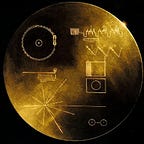Optimistic Nihilism — Sanity in the age of an insane world
Man is condemned to be free; because once thrown into the world, he is responsible for everything he does. It is up to you to give life a meaning.
J.P. Sartre
So, here we are, a world gone apparently berserk. In a few short weeks, modern civilization has moved from a complacent pace into a frenzy of lock downs (and TP madness).
Freaking out, as many deem a response is of course out of the question. So, what is one to do?
I am writing this for those that have already assimilated the seriousness of the current epidemic. For those that are already common-sensical and follow the guidelines of isolations and self -hygiene, for those that do not compulsively touch their faces with unsanitized hands.
You may of course, think that the above descriptions already account for those that are able to keep sane in this extreme situation and therefore why should you even read this as you are already in the audience category defined.
Bear with me a moment and maybe I shall convince you that sanity is a worthy goal, in all circumstances but more particularly in extreme circumstances when the world seems upside down.
When panic sets in.
Panic is an interesting word; it comes as many other ideas from the Greek pantheon. Specifically, the word Panic refers to the ‘sudden fear’ (sudden and irrational) experienced by the human animal when the god Pan (the same of panpipes) is awakened before ending his nap and gives a great shout.
Leonard J. Schmidt and Brooke Warner describe panic as “that terrible, profound emotion that stretches us beyond our ability to imagine any experience more horrible” (wiki)
The Greeks called it ‘Panikos’ the sudden fear.
Interestingly the sudden fear is per definition irrational. And therefore, one should be prepared, mentally, emotionally and consciously.
How does one prepare?
Well, philosophically speaking there is an answer: Optimistic nihilism. (Or ‘negative capability’ as per Keats) or ‘Poetic naturalism’ or even a Sartre inspired version of existentialism and of course there is always the peaking grand child of absurdism around the corner, waiting to be revealed.
Optimistic nihilism is an interesting game play. It assumes as all intelligent conscious aware beings must, that the universe is without purpose or end. Which reliably makes our lives meaningless in the grand scheme of things. However, contrary to the misery which might logically derive from a meaningless existence, without an inherent purpose from above, optimistic nihilism demands of us to take the reins of direction, purpose and meaning into our hands. Not to mention the obvious fact that we are ultimately responsible for our own happiness, joys and choice of illumination.
In a very simple sense, it demands of us to not be children, afraid of their own shadow, and to have the courage to remember that beauty is that which we define as such.
And yes, it does take courage and nerve, mettle and spirit, valor and self-motivation. A sane ambition in face of uncertainties.
Commonly these traits and attributes are the domain of the few, however in dire straits as we are currently experiencing, we can and do rise to the occasion. We are a resilient species, robust in our desires as much as we are vigorous in our aspirations and capable in our doings. We are in fact an anti-fragile species.
“Antifragility is beyond resilience or robustness. The resilient resists shocks and stays the same; the antifragile gets better. “
Nassim Taleb (at Farnam street)
We did not choose these circumstances that is true, and given the choice, most of us would have chosen otherwise. The rub of course is that no one asks us, we can however choose our response and attitudes. The point being that by choosing our responses we proclaim our adulthood and sanity.
We may of course be stoic about it, and though I much appreciate the contributions to our sanity of both Seneca and Marcus Aurelius, I believe that we can do better.
How to do better?
There are in fact a number of ways to do better, but all these ways and manners of being have one primal thing in common, and it is this:
That we are free to choose how we are.
At first glance, you may think this statement a cliché, but think for a moment. Though it is true that we did not choose to be born, in this family, in this country, in this age and time and certainly not live in these Corona pandemic times. We can choose HOW to be. Even if we cannot choose WHAT to be.
We did not choose WHEN to be, WHAT to be and WHERE to be, but we can choose HOW to be.
The HOW of our existence, our mindsets and our worldviews, our emotional attachments and our aspirations and more importantly our attitudes, are under our control.
The point of course is to understand how to HOW.
The first and most crucial issue to deal with is to define your worldview and to commit to it. By choosing an optimistic nihilism worldview, you accept that there is no grand purpose, and that this very fact makes you free to create your own. It makes you sane, and ultimately responsible for your own being.
Much before the little ‘how’ of ‘to do’ there is the big ‘HOW’ of ‘to think’. To think in an optimistic nihilism fashion is to unlatch the doors of perception and unleash the creativity of self-creation.
Fundamentally it reverts all responsibility to oneself and opens new avenues of inter-subjectivity.
“If you’re lonely when you’re alone, you’re in bad company.”
Jean-Paul Sartre
This is part 1
